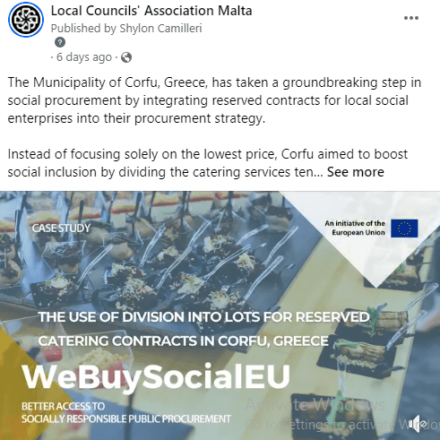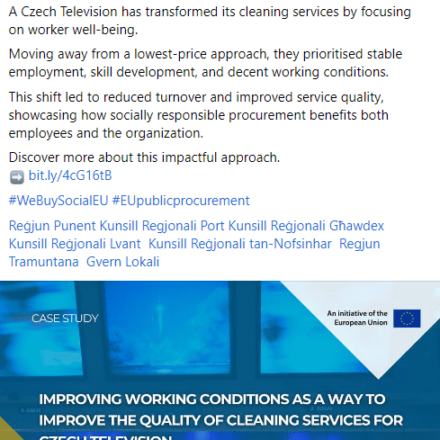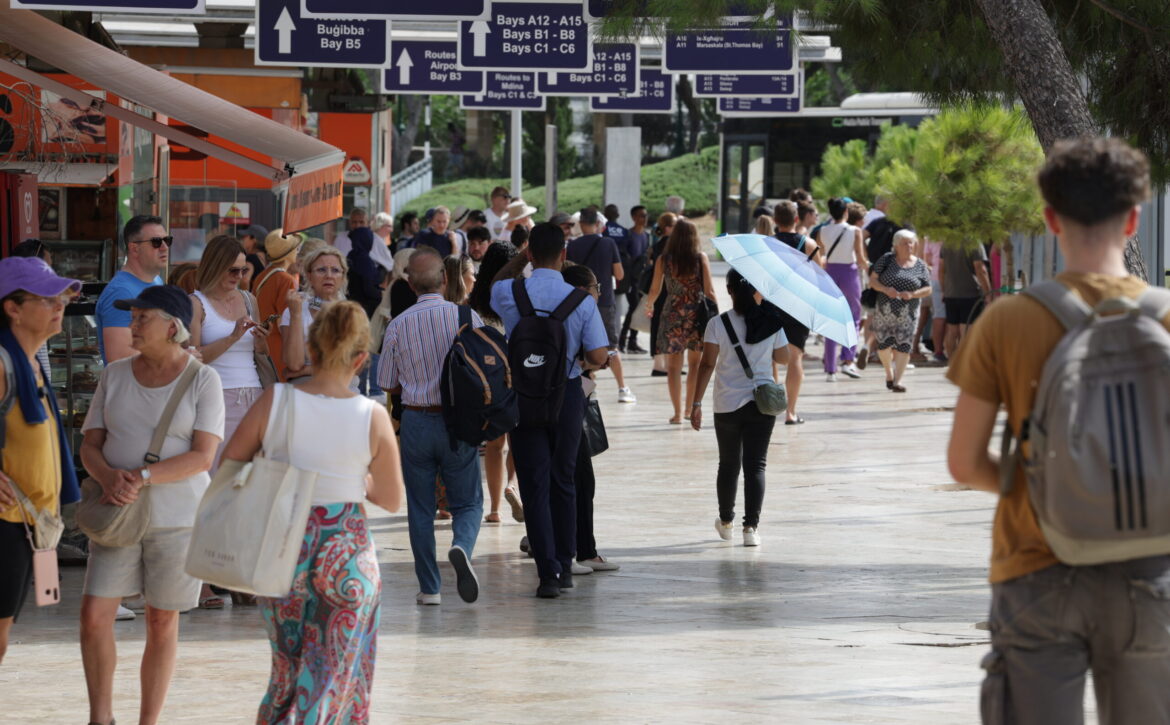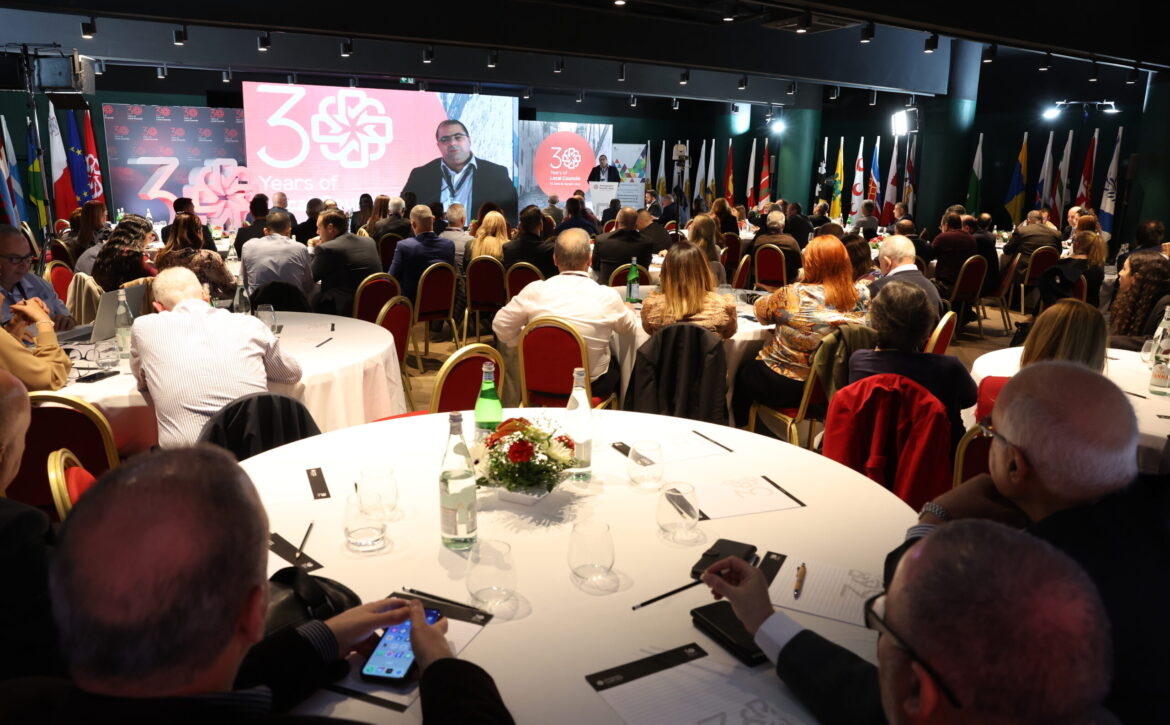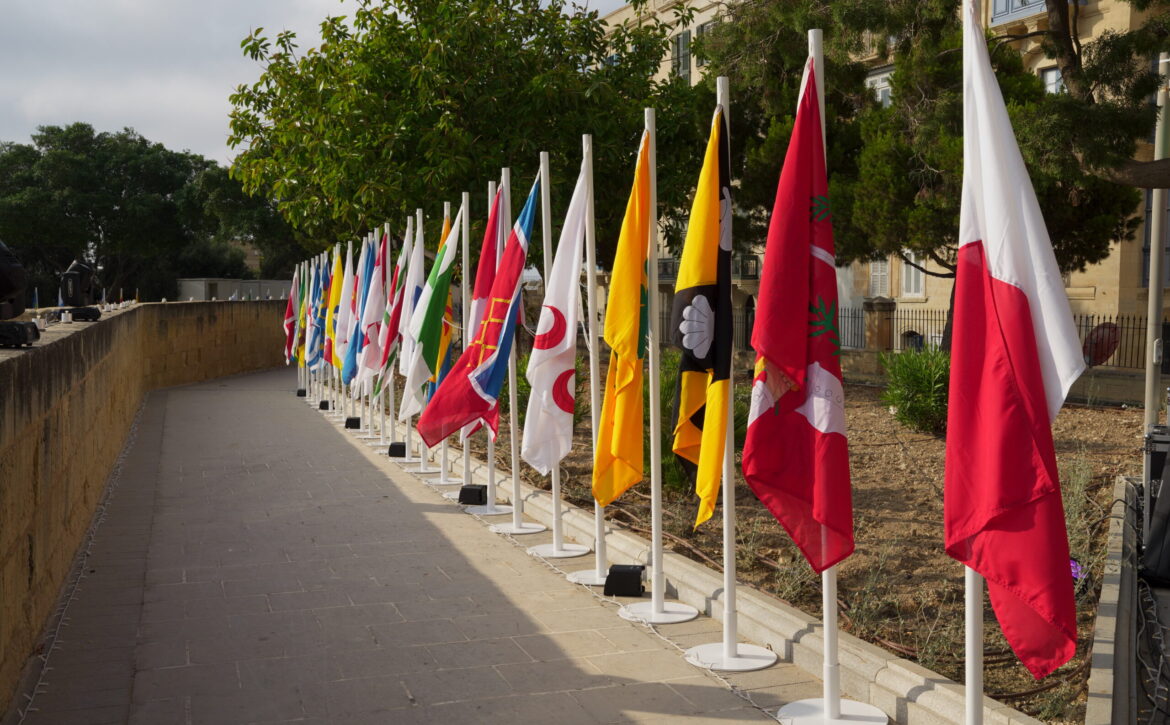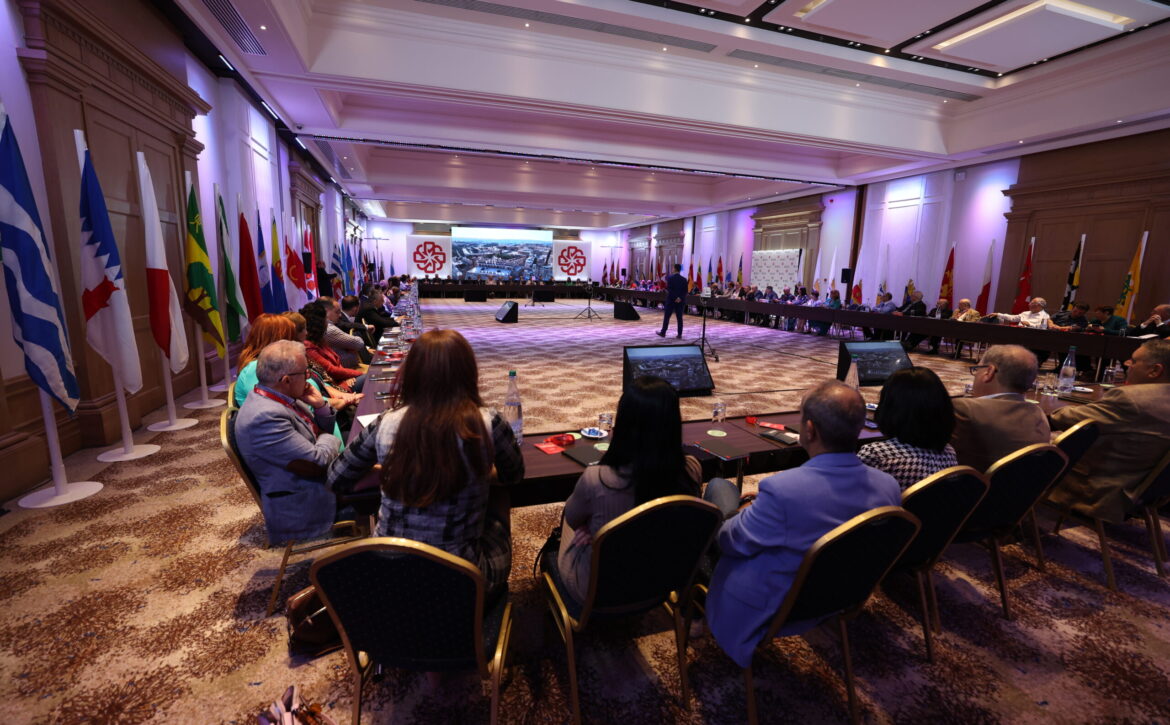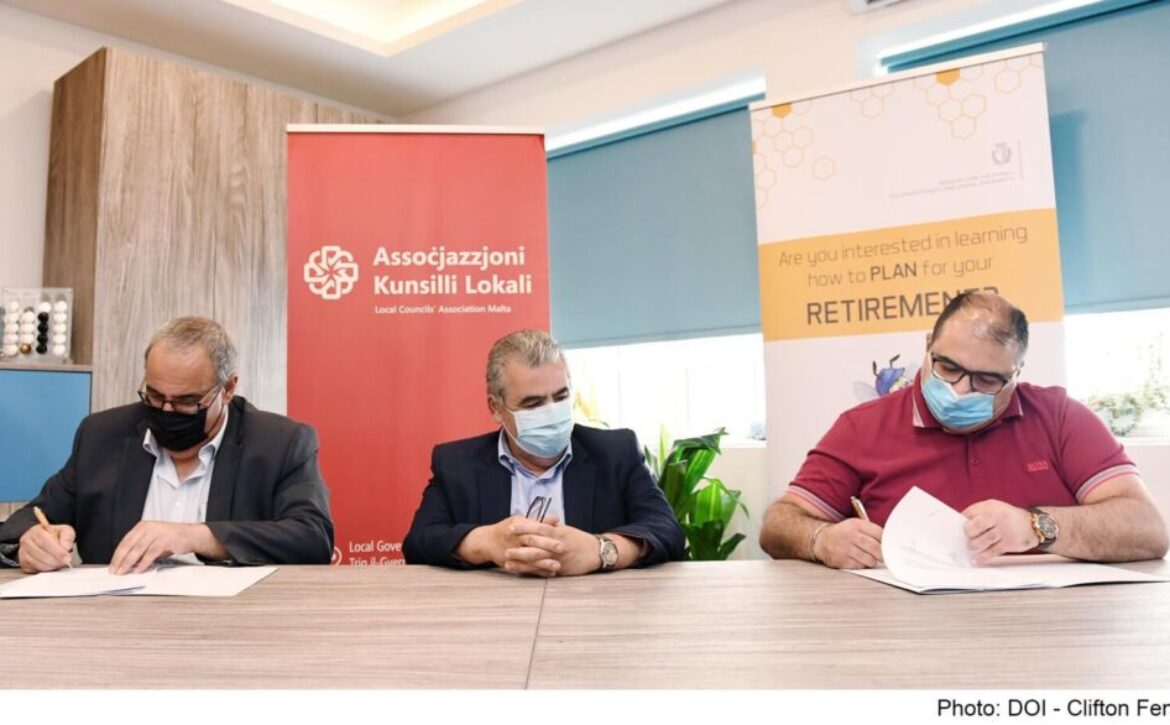The resource that is often underestimated but can significantly contribute to the progress of local governments is youth. Yes, young people sometimes grow impatient with the pace of progress in their communities and may even take it for granted, but they are a valuable resource. They can serve as a primary catalyst in a strategy designed to engage and empower residents by their respective Local Governments.
Often, youth are overlooked when discussing strategies aimed at increasing resident participation. This oversight can occur for various reasons.
Perhaps because they don’t yet have voting rights, perhaps because they don’t pay taxes, perhaps because they don’t contribute directly to the country’s economy to the same extent, or perhaps because they lack property ownership, etc. Nevertheless, young people represent the future of our communities and our local and regional authorities.
In this context, Youth Councils are crucial; they represent a unique opportunity for Local Governments to infiltrate schools, colleges, and universities. They also provide a platform through which we can cultivate interest in Local Government, promote the principles of local democracy, and foster the concept of direct participation in decision-making processes that affect us directly. Typically, when young people engage themselves, they are more likely to remain actively involved in their local community, establishing themselves as participating residents.
Local Youth Councils can also be instrumental in addressing the erosion of trust in Local Councils. It’s possible that trust in Local Councils has waned somewhat, and this can be attributed to various factors. I also consider external influences, although the reasons may vary. Certainly, the pandemic hasn’t helped much as physical distancing has created a certain disconnect, we were almost beginning to overcome.
What does it offer in terms of participation?
When sections of society have experienced marginalization for an extended period, it’s conceivable that council members may not fully grasp the significance of integrating these groups into the council’s efforts. Frequently, the enthusiasm and innovative outlook of younger individuals can facilitate connections with these marginalized groups and construct bridges that previously might have been overlooked as unnecessary. Numerous instances of successful approaches substantiate this assertion, both domestically and internationally.
Ensuring full participation in decision-making processes is not just a mere aspiration; it is a fundamental right deeply rooted in the principles of the universal declaration of human rights. By actively engaging young people in these processes, we empower them to shape and implement initiatives they believe will benefit both themselves and their communities, while fostering their involvement in the development of their localities. However, it’s crucial not only to afford them the opportunity to contribute but also to support them in honing their skills in ways that serve others. This approach not only guarantees and ensures that tomorrow’s adult residents possess a strong civic sense but also leads to a myriad of benefits for the locality as a whole. From improved community cohesion to innovative solutions for local challenges, the active involvement of young people in decision-making processes lays the groundwork for a more inclusive, vibrant, and prosperous society.
Erasmus+
In addition, young people have various opportunities for skill exchange to enhance their abilities in this regard. The Erasmus+ program, funded by European sources, serves as a prime example of this. Let’s take a closer look at this initiative and how it can assist young individuals in acquiring the necessary skills.
This program supports activities beyond formal education and training that encourage, empower, and facilitate the participation of young people in the democratic life of Europe at local, regional, national, and European levels.
Erasmus+ serves as a cornerstone in fostering youth-led participation projects at various levels, be it local, national, transnational, or international. These endeavors, spearheaded by young individuals and overseen by informal youth groups or organizations, represent a concerted effort to bolster democratic engagement among Europe’s youth populace. They are driven by a multifaceted approach aimed at achieving one or more of the following overarching objectives:
- They play a pivotal role in providing young individuals with invaluable opportunities to actively engage and develop their participation skills within civil society. These pathways not only facilitate youth involvement in their daily activities but also extend to nurturing their engagement in democratic processes. The overarching goal is to cultivate meaningful involvement in various aspects of civic, economic, social, cultural, and political spheres among young people from diverse backgrounds. Moreover, there is a deliberate focus on ensuring that those facing greater barriers to participation are provided with targeted support, thereby promoting inclusivity and equity within society.
- They play a crucial role in increasing awareness among young individuals regarding shared values and fundamental rights within Europe, thereby actively contributing to the ongoing process of European integration. This contribution extends to the attainment of one or more of the EU Youth Goals, fostering a deeper understanding and appreciation of the principles that underpin the European Union’s mission and objectives.
- They develop the digital competencies and media literacy of young people, particularly critical thinking, and the ability to evaluate and work with information, with the aim of enhancing youth resilience to misinformation, fake news, and propaganda, as well as their ability to participate in democratic life.
- They connect young people with decision-makers at the local, regional, national, and transnational levels, or contribute to the EU Youth Dialogue, facilitating meaningful engagement and participation in democratic processes.
The EU Youth Strategy 2019-2027 serves as a pivotal framework for fostering collaboration across Europe concerning youth affairs, drawing inspiration from the European Commission’s Communication issued on 22nd May 2018, titled “Engagement, Connection, and Empowerment of Youth”. Central to this strategy is the pivotal domain of “Involvement”, which seeks to propel the active engagement of young individuals across various spheres: be it civic, economic, social, cultural, or political. The overarching objective is to galvanize youth participation within democratic processes, amplifying their voices within societal discourse. Moreover, the strategy is dedicated to bolstering social cohesion and civic responsibility among young people, thereby fortifying the foundations of democratic societies. By equipping young individuals with the requisite resources and opportunities, the strategy endeavors to ensure their holistic integration into society, enabling them to contribute meaningfully to its development and progress.
The EU Youth Strategy also encompasses a dialogue process with young people. In this context, in 2018, 11 European youth goals were developed through a dialogue with young people. These goals identify a range of cross-sectoral areas impacting youth life and highlight the challenges that need to be addressed in each of them. In collaboration with relevant stakeholders and youth representatives, each 18-month cycle of the EU Youth Dialogue identifies specific thematic priorities. These priorities are carefully selected to guide the implementation focus of the EU Youth Strategy during that particular period. This dynamic dialogue process ensures that the strategy remains responsive to the evolving needs and concerns of young people, fostering a targeted and effective approach to address the various aspects of youth life across Europe.
Thematic strategies in the youth sector
The Erasmus+ program aims to promote youth participation, enhance the quality of informal and non-formal learning processes, and foster quality work among young people. Further support in these areas is available through specific thematic strategies, such as the Youth Participation Strategy, Youthpass, and the European Training Strategy (ETS).
Activity breakdown
Youth participation activities are non-formal learning activities that focus on active youth involvement. These activities aim to enable young people to experience exchanges, cooperation, cultural, and civic action. Supported activities help participants strengthen their personal, social, citizenship, and digital competencies, making them active European citizens.
This action supports the use of alternative, innovative, smart, and digital forms of youth participation, including expanding youth participation across various sectors and spaces (such as healthcare services, sports facilities, etc., regardless of whether they are operated by the public or private sector), thus opening up pathways for active youth participation from all backgrounds.
Youth engagement initiatives play a pivotal role in fostering dialogues and exchanges between young individuals and policymakers, thus bolstering their active involvement in democratic processes throughout Europe. This proactive engagement enables young people to effectively voice their perspectives by articulating their opinions, presenting proposals, and offering recommendations, particularly regarding the formulation and execution of youth policies across Europe. Furthermore, these activities extend beyond mere discourse, encompassing civic action and youth activism, empowering young individuals to engage in diverse avenues aimed at raising awareness about issues of significance to them.
Youth participation activities can be either transnational (implemented across one or more participating countries and involving informal groups of young people and/or organizations from different participating countries) or national (involving informal groups of young people and/or organizations from one participating country). National youth participation activities are particularly suitable for testing ideas at the local level and as a follow-up to previous initiatives, aiding in the refinement and further development of successful ideas.
All youth participation activities, regardless of the level at which they are implemented, need to have a clear European dimension and/or added value, and each supported individual activity must contribute clearly to achieving one or more of the objectives listed above.
Supported activities can encompass a variety of formats, either individually or in combination. These include workshops, debates, role-playing games, simulations, utilizing digital tools (such as those for digital democracy), awareness campaigns, training sessions, meetings, and other modes of online or offline interaction between young individuals and decision-makers. Additionally, supported activities may involve consultations, informational events, cultural gatherings, or any combination thereof.
Some of these activities can be implemented within a project:
- Events such as workshops, face-to-face or online meetings, seminars, and other gatherings serve as vital platforms for the active engagement of young people across local, regional, national, and transnational levels within Europe. These events aim to facilitate information sharing, foster debate, and encourage the active participation of youth in matters directly impacting their daily lives as European citizens.
- The primary objective of these events is to provide a forum where young individuals can not only gain valuable insights but also actively contribute to discussions on pertinent issues. Moreover, they offer opportunities for interaction with decision-makers and other stakeholders involved in addressing these concerns. By bridging the gap between youth and decision-makers, these events promote a more inclusive and democratic approach to governance, where the voices of young people are heard and considered in shaping policies and initiatives relevant to their communities and beyond.
- Engaging in consultations with young individuals aimed at pinpointing subjects or queries that hold particular significance to them within local, regional, national, or transnational contexts. Through these consultations, the objective is to discern the specific needs of young people concerning their involvement in addressing these identified subjects or questions.
- Initiating awareness campaigns with a focus on fostering youth engagement in democratic processes. These campaigns encompass a range of activities, including informational sessions and cultural events, strategically designed to address specific societal challenges pertinent to young individuals. Through these initiatives, the aim is to empower youth to actively participate in shaping democratic discourse and addressing issues that directly impact their lives.
- Enabling young people to access inclusive and secure virtual or physical spaces, thereby granting them effective educational avenues to actively participate in civic life and democratic procedures. This facilitation aims to empower youth by providing them with the necessary resources and platforms to learn about and engage in democratic processes, fostering their sense of citizenship and community involvement.
- Engaging in simulations that replicate the operations of democratic institutions and explore the responsibilities of decision-makers within them.
In contexts where applicable, there’s a strong recommendation to integrate digital activity formats and provide training on the utilization of digital democracy tools within youth participation projects. These initiatives should encompass a diverse range of activities designed to collectively advance towards the project’s envisioned goals. By incorporating digital components and fostering digital literacy among participants, these projects can effectively leverage technology to enhance youth engagement and facilitate their active involvement in democratic processes.
The funding for these activities predominantly comes from the “project management” budget category, which entails a monthly contribution per unit. Within this framework, the project activities typically encompass various facets such as project management meetings and consistently conducted project activities. Additionally, the project may incorporate one or more events centered around Youth Participation. This financing structure ensures sustained support for the implementation and coordination of initiatives aimed at fostering youth engagement and participation.
The designation “physical events” refers to gatherings crucial for advancing the project’s goals; they often signify pivotal milestones within the project timeline and must be clearly distinguished from ongoing project undertakings, whether in terms of content, scale, or attendee demographics. Additionally, a Youth Participation event denotes a physical assembly where young individuals are physically present, alongside other relevant participants. Such events attract not only members of informal groups or youths from beneficiary organizations directly engaged in project activities but also a diverse audience comprising young people and/or decision-makers. It’s imperative that the event’s duration aligns with planned activities and desired outcomes, accommodating variations in length, spanning from brief sessions lasting hours to comprehensive gatherings spanning multiple days. Specific assistance for organizing physical events is provided on a “per participant per event” basis, irrespective of event duration.
Youth participation projects that involve project activities or physical events requiring participants to travel to different locations from where they reside may be eligible for additional funding for mobility, which covers travel and subsistence support. Mobility Youth Participation projects can be both national and international, but they always support project activities funded through project management costs or youth participation event expenses.
Activities such as statutory meetings of organizations or networks, the arrangement of partisan political events, and investments in physical infrastructure (e.g., building construction or acquisition costs, as well as permanent fixtures) cannot be funded within the scope of this Action.
Projects demonstrating robust participation elements, extending beyond the conventional format of youth engagement activities, along with pertinent best practices, are accessible within the Youth Participation Tools Set.
An established project
A project endorsed by this Action ought to incorporate one or several of the aforementioned elements. These components can be dynamically integrated based on the project’s goals and the requirements of participating organization(s) and participants.
The execution of the project is carried out by either one or multiple informal youth groups, one or more organizations, or a combination thereof. It is imperative to identify the informal youth group(s) and/or participating organizations during the application phase. Additional youth may participate in the project as either active participants in certain activities or as constituents of the group targeting said activities. In cases where only an informal youth group is involved, an application is submitted by one of its members acting on behalf of the group. However, if multiple groups or organizations are engaged, one of them assumes the role of coordinator and submits the application for the entire project on behalf of the consortium.
A project is structured into four distinct phases: planning, preparation, implementation, and follow-up. It is crucial for both participating organizations and the youth involved to actively participate in each of these stages to enrich their learning journey. Through actively engaging in the planning, preparation, implementation, and follow-up phases, participants can significantly enhance their learning experience. Moreover, as the activities are tailored by youth for youth, it fosters a more relatable and engaging environment. Additionally, to further bolster youth participation, the Youth Participation Toolkit serves as a valuable resource, offering a plethora of ideas and practical guidance:
- Planning Phase: This initial stage involves thorough planning encompassing the identification of needs, setting objectives, delineating learning outcomes, determining activity formats, devising program development strategies, and crafting a detailed activity schedule.
- Preparation Phase: During this phase, practical arrangements are made, agreements are established with partners, and confirmation is sought from the targeted groups earmarked for the planned activities. Additionally, linguistic, intercultural, and preparatory measures related to participants’ learning and tasks are undertaken to ensure smooth execution
- Implementation Phase: Here, the planned activities are put into action, with careful attention paid to adhering to the established schedule and executing each activity effectively.
- Follow-up Phase: Following the completion of activities, this phase involves the evaluation of their effectiveness, the identification, and documentation of participants’ learning outcomes, and the dissemination and utilization of project outcomes. Notably, as part of this phase, it’s imperative for each project to devise a feedback mechanism to provide specific achievements to the youth participants. This feedback should also outline how these achievements will be communicated to relevant stakeholders and utilized by them.
EU Youth Dialogue
The themes and focal points outlined in the EU Youth Dialogue offer valuable inspiration for youth engagement initiatives across various levels. Likewise, the EU Youth Goals, established within the framework of the EU Youth Dialogue, provide additional avenues for inspiration. These goals pinpoint cross-sectoral domains impacting youth and highlight key challenges. Moreover, the outcomes achieved through successful youth participation endeavours can be leveraged as valuable contributions to advance subsequent stages of the EU Youth Dialogue.
The Learning processes
In a Youth Participation Activities project, it’s essential to incorporate assistance for fostering reflection, identifying, and documenting the individual learning accomplishments of every participant. This support should extend to all individuals involved, regardless of whether they belong to informal youth groups leading the project or are not actively engaged in the preparation and execution phases. A key avenue for facilitating this process is through mechanisms like the Youthpass.
Protection and Safety of Participants
Throughout the project planning and preparation phases, the issue of participant protection and safety must be addressed, with all necessary measures provided for the prevention and mitigation of risks.
Community Building
Encouraging the integration of community-building activities within youth participation initiatives is highly recommended. Whenever possible, these activities should strive to extend beyond the lifespan of the supported projects and evolve into self-sustaining endeavours.
Inclusion and diversity
The Erasmus+ program is dedicated to fostering equality, accessibility, inclusion, and fairness in all its endeavours. Applicants are mandated to devise projects that prioritize accessibility and inclusivity, ensuring that the perspectives of participants with fewer opportunities are taken into account and actively involved in the decision-making process.
Youth participation activities are particularly suitable for the inclusion of young people with fewer opportunities.
- Youth participation activities are structured as fundamental action formats with extremely flexible parameters, including duration, participant numbers, and whether they are conducted on a national or transnational scale. This adaptability allows for easy customization to meet the specific needs of young people facing fewer opportunities.
- Informal youth groups embarking on youth participation initiatives can receive valuable support through coaching services. These services play a crucial role in guiding and assisting young people, especially those facing fewer opportunities, throughout the development and execution phases of their projects.
- The action objectives include providing opportunities for youth to participate in civic society, as well as improving digital and media literacy. Projects aligned with these goals can be particularly beneficial in helping young people facing fewer opportunities address some of the challenges they may encounter.
Youth participation activities are well-suited for addressing themes of inclusion and diversity within society. They serve as effective platforms to combat stereotypes, foster understanding, promote tolerance, and advocate for non-discrimination.
Environmental Sustainability
The primary objective of the project is to foster a culture of environmentally sustainable and responsible conduct among participants, emphasizing the critical need to mitigate or compensate for the environmental impact associated with mobility activities. This multifaceted endeavor involves not only raising awareness but also actively developing and implementing a range of environmentally conscious strategies. These strategies encompass various sustainable practices, including but not limited to the careful selection of materials that can be reused or have minimal environmental impact, robust waste reduction and recycling initiatives, and the promotion and adoption of sustainable transportation modes. By integrating these practices into the fabric of the project, we aim to instill a deep sense of environmental stewardship and inspire tangible action towards a more sustainable future.
Digital Transformation in the youth sector
The Erasmus+ program serves as a vital support system for all participating organizations, facilitating the seamless integration of digital tools and innovative learning methods into their existing frameworks. This integration aims to not only complement traditional physical activities but also to foster greater collaboration among partner organizations and elevate the overall quality of experiences offered. By advocating for the incorporation of digital and online elements, the program actively works to mitigate barriers that may impede youth participation and limit opportunities for engagement.
Moreover, Erasmus+ endeavors to catalyze a profound shift in perspective through a series of targeted projects and activities. These initiatives are designed to not only promote the acquisition of essential digital skills but also to address critical aspects of digital literacy. Additionally, they seek to cultivate a nuanced understanding of both the risks and the vast opportunities presented by digital technology in a contemporary society.
Through these concerted efforts, the Erasmus+ program seeks to initiate a transformative process, altering entrenched mindsets and fostering a culture of digital innovation and adaptability. By nurturing a generation of digitally savvy individuals, the program aims to contribute significantly to the ongoing evolution of digital approaches and components within the realm of youth activities, ultimately empowering young people to thrive in an increasingly digital world.
In alignment with the activities’ definitions and objectives, integrating the development of competencies and awareness surrounding digital issues, along with the incorporation of new technologies, can be seamlessly woven into physical events or learning mobility initiatives. However, it’s important to note that purely virtual components should be allocated separate funding streams, distinct from project management expenses.
Furthermore, justified expenditures aimed at fostering the inclusion of youth with fewer opportunities can be channelled through participant inclusion support mechanisms. This approach ensures that financial resources are allocated strategically, maximizing the impact of the program while safeguarding equitable access for all participants.
Participation
The Erasmus+ program supports all participating organizations in enhancing the quality of their projects by integrating participatory dimensions. Simultaneously, it provides relevant opportunities for youth to actively engage in the creation and implementation of project activities, serving as a pathway for discovering the benefits of active citizenship and participation in democratic life. Resources for strengthening the participatory dimensions of supported projects can be accessed, among other avenues, through the website participationpool.eu. Additionally, organizations are encouraged to establish connections with national, international, or other existing EU initiatives and platforms focused on participation and civic engagement, fostering collaboration and involvement therein.
Who can apply?
Any eligible participating organization established in a Member State of the EU or in an associated third country to the Program can be the applicant. This organization applies on behalf of all participating organizations involved in the project.
Eligible participating organizations
The participating organization can be:
- An organization without a profit motive, association, NGO; European Youth NGO; public body at the local, regional, national level; social enterprise; a profit-oriented organization with active Corporate Social Responsibility (CSR);
- An informal group of young people.
Established in a Member State of the EU or in an associated country to the Programme or in a non-associated country to the Programme within the EU’s geographical area (Regions 1 to 4; refer to the “Eligible Countries” section in Part A of this Guide).
Number and profile of participating organizations
- National Youth Participation Projects: Require the involvement of a minimum of one participating organization.
- Transnational and International Youth Participation Projects: Require the participation of at least two organizations from different countries.
Eligible Participants
Young people between the ages of 13 and 30, residing in the country where the participating organizations are based, as well as those who play a role in making decisions relevant to the project’s focus areas, are eligible to participate.
This underscores that individuals aspiring to contribute to their communities require not only personal motivation but also access to resources, which this program aims to provide. Therefore, by nurturing active youth engagement within a locality or community, we are not only investing in its future prosperity but also enhancing its current vibrancy.
Mario Fava
President

